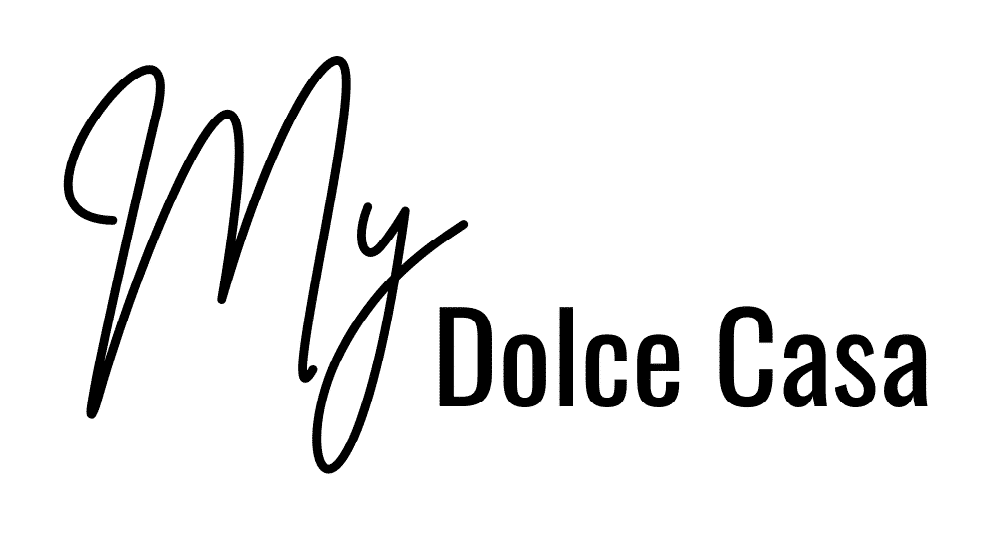Getting a good job in France as an English-speaker from a non-EU country can be quite a challenge, because French and European citizens typically have priority in employment.
The good news is that the French job market is very strong. There are hundreds of thousands of job vacancies in France and the average annual salary is among the highest in the world, close to $53,000 per year, according to the latest OECD data.
On the other hand, unemployment in France is at around 7%, per European Union statistics, so there is plenty of competition.
The most important point when it comes to securing a job in France is that your options will be extremely limited unless you speak good French. This means that you must be able to have a coherent conversation about a specialized topic in your field, ideally at a C1 or C2 level of fluency.
There are specific characteristics of the French job market that are crucial to know before setting off on your job search. Here’s a roadmap along with a wealth of valuable tips and tricks to follow:
How are vacancies for English-speaking job seekers advertised?
Employers usually advertise vacancies in the local Labor Exchange. If the job has been advertised for three weeks, but no suitable French candidates have come forward, the employer can apply to the Department of Labor and the Immigration Office to employ a foreigner.
The “labor exchange” in France is commonly referred to as “Pôle Emploi,” which is the French public service agency responsible for employment. Pôle Emploi serves both as a job center and as an agency that provides financial aid to unemployed individuals.
Functions of Pôle Emploi
- Pôle Emploi connects job seekers with potential employers by listing available job vacancies and helping individuals apply for these positions. It serves as a platform where employers can post job offers and search for candidates whose skills match their requirements.
- The agency administers and processes claims for unemployment benefits, ensuring that eligible individuals receive financial support during their periods of unemployment.
- Pôle Emploi offers various services aimed at improving job seekers’ employability, including career counseling, skill assessments, and professional training programs. These services are designed to help individuals re-enter the workforce or transition into new careers.
- Beyond assisting job seekers, Pôle Emploi also provides support to employers, including advice on recruitment strategies, information on employment laws and regulations, and subsidies for hiring certain categories of unemployed individuals.
- The agency collects and publishes data on the labor market, providing valuable insights into employment trends, unemployment rates, and sector-specific information.
Accessing Pôle Emploi Services
- Online Platform: Much of Pôle Emploi’s services are accessible through its website, where individuals can search for jobs, upload their CVs, apply for unemployment benefits, and access various other resources.
- Local Offices: Pôle Emploi operates a network of local offices across France where individuals can receive personalized support, attend workshops, or participate in job fairs.
Alternatively, all types of jobs are advertised on such websites as Edu Project, Glassdoor or Indeed.
What type of jobs are available to English-speaking foreigners?
According to the European Employment Services, the most in-demand available jobs in France cover a wide spectrum ranging from warehouse workers and childcare assistance to cashiers and administrative positions.
If you are a highly skilled worker, there are some excellent openings in the corporate world. France has a number of industrial sectors including energy, manufacturing, technology and tourism.
Among the most popular jobs for expats living in France are as childcare providers and teachers of English as a second language. In some parts of France, seasonal and unskilled jobs are common in the agricultural sector.
A limited number of job vacancies in France are classified as ‘Visa Sponsorship Jobs.’ In this program, companies can employ foreigners needing a work visa, which is provided if they are qualified.
There are vacancies in the health, tech, business, ICT, software development and insurance sectors, among others. Unskilled workers are also needed and these include farm and warehouse workers. Some of the major French employers who offer visa sponsorship include Airbus, Total Energies and L’Oréal.
Applying for a job in France as an English speaker
Crafting a job application for the French market requires attention to detail and an understanding of the local customs and expectations. Here’s a structured approach to ensure your application stands out:
Curriculum Vitae (CV) Preparation
1. Format and Style
French CVs are characterized by their formality and precision. It’s beneficial to consult a CV from a French acquaintance as a template to grasp the preferred layout and tone.
Ensure your CV adheres to French standards, which typically means concise and to the point, avoiding any unnecessary embellishments or personal details not relevant to the job.
2. Language
If the job listing is in English, it’s acceptable to submit your CV in English, but also include a version translated into French to accommodate all reviewers.
Regardless of the CV language, your cover letter should always be drafted in French to demonstrate your language proficiency and respect for local practices.
3. Structure
Personal Information: Start with your basic details such as name, contact information, and possibly a professional photo, in line with French norms.
4. Professional Objective (Projet Professionnel)
Clearly articulate your career goals and how they align with the position you’re applying for, demonstrating your ambition and direction.
5. Work Experience (Expérience Professionnelle)
Present your professional history in reverse chronological order, starting with your most recent position.
For each role, include the company name, your title, and the dates of employment. Be sure to highlight your responsibilities and achievements in a manner that showcases your suitability for the job you’re applying for.
6. Education (Formation)
Detail your academic background, again in reverse chronological order, emphasizing degrees, certifications, and relevant coursework.
Skills:
7. Languages (Langues)
Specify the languages you speak and your level of proficiency in each, which is particularly important in a multilingual environment like France.
8. Additional Skills (Informatique et Autres Compétences)
This section should outline other pertinent skills, such as computer literacy, software competencies, and any other certifications like First Aid, that might enhance your application.
Additional Tips
- Pay close attention to the job description to tailor your CV and cover letter to the position’s specific requirements.
- Proofread your application meticulously to avoid any errors, and consider seeking feedback from native French speakers to ensure the language and presentation meet local expectations.
Tips on preparing your cover letter
The cover letter is known as lettre de motivation and should be written in French. The name of the person receiving the letter and the job reference number should be written in the top right-hand corner, while your name, address and the date in the top left corner.
Your cover letter should be brief and concise – 12-15 lines maximum and should mention specific jobs that you have done that showcase your skills and suitability for the job.
Tips for the job interview
Job interviews in France are often in multiple stages, so it is quite normal to be invited to attend several different interviews as the employer whittles down the competition.
The usual rules that apply to the interview are: get there on time, be smartly dressed, be courteous, and let your character shine through.
Make sure you have done some research on the company, its projects and exactly what work the job vacancy entails.
Important things to keep in mind when interviewing for a job in France:
- The French are very polite, so address everyone you meet correctly – Bonjour Monsieur or Bonjour Madame.
- Do not attempt to give your interviewer a welcoming kiss – a firm handshake is perfect.
- Always be polite when answering them and use vous, not the more informal tu.
- It is very acceptable for French interviewers to ask questions about your family and your children.
- Have a good question to ask the interviewer too.
How to apply for a job in France as a citizen of another Schengen country
Applying for a job in France as a citizen from another Schengen country is generally straightforward due to the free movement of persons within the Schengen Area, which includes most EU countries and a few non-EU countries.
As an EU or Schengen country citizen, you have the right to work in France without needing a work permit. However, there are still several steps and considerations to take into account:
1. Job Search
Begin your job search by looking at various French job search websites, EU job mobility portals like EURES (The European Job Mobility Portal), and the websites of companies you’re interested in. Networking and social media platforms like LinkedIn can also be valuable resources.
2. Application Process
Prepare your CV and cover letter in French unless the job posting specifies another language. It’s important to adapt your CV to the French style, which is concise and focuses on your professional experiences and education.
Some positions might require you to submit your applications through an online system, while others might ask for an email or even a physical application.
3. Recognizing Your Qualifications
Depending on your profession, you might need to get your qualifications recognized in France. This is particularly relevant for regulated professions (e.g., healthcare, education, law). You can seek information from the ENIC-NARIC network or the relevant professional body in France.
4. Interview Process
Be prepared for the possibility of several rounds of interviews, including phone or video interviews followed by in-person meetings, particularly if you’re applying from abroad.
5. Work Culture and Language
Having a good command of the French language is crucial for most jobs, even in international companies, unless the work is specifically in a different language. Familiarize yourself with French business culture, which can be more formal than in other countries.
6. Relocation
Once you secure a job, you’ll need to think about relocation logistics, including housing, health insurance, and social security registration. As an EU/Schengen citizen, you have access to the French social security system but need to register upon arrival. You may also need to open a French bank account and get a French phone number.
7. Legal Formalities
Although you don’t need a work permit, you should register your residence in France if you plan to stay longer than three months. This can be done at your local town hall (mairie) or prefecture.
8. Taxes and Social Security
Understand the French tax system and your obligations regarding income tax and social security contributions. It might be beneficial to consult with a tax advisor, especially for your first year of work in France.
Each step can vary based on your specific situation, the industry you’re targeting, and the region of France where you intend to work. It’s also wise to stay updated on any changes in regulations post-Brexit and other geopolitical events that may affect the ease of movement and work within the Schengen Area.
Bonne chance!








Leave a Comment